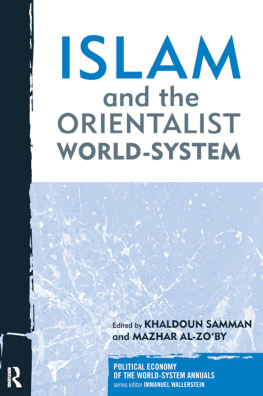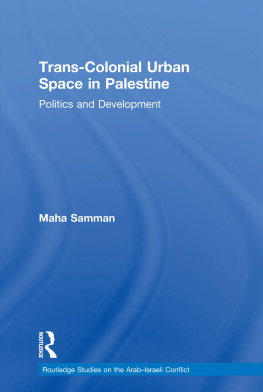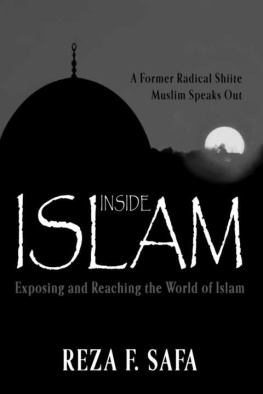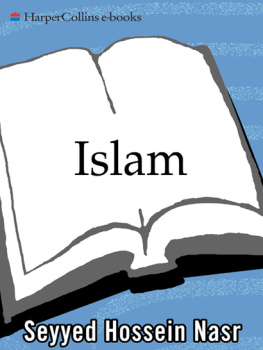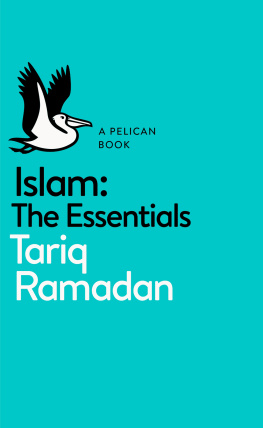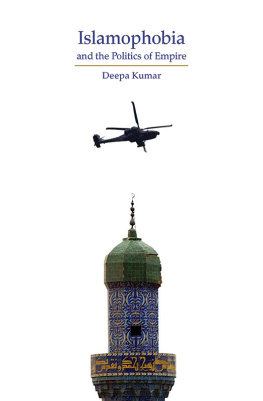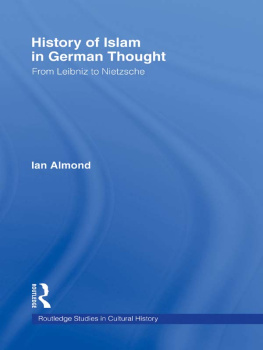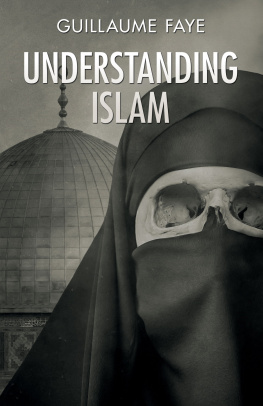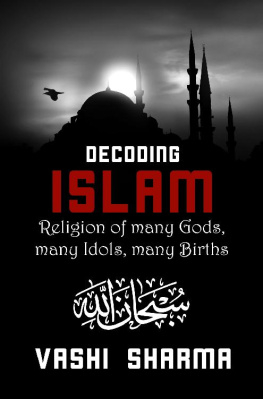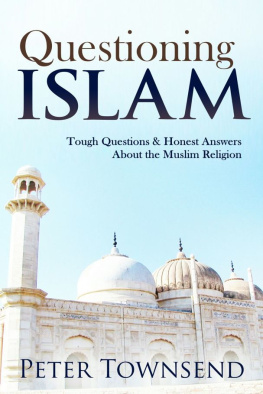Khaldoun Samman - Islam and the Orientalist World-System
Here you can read online Khaldoun Samman - Islam and the Orientalist World-System full text of the book (entire story) in english for free. Download pdf and epub, get meaning, cover and reviews about this ebook. City: Boulder, year: 2013, publisher: Paradigm Publishers, genre: Politics. Description of the work, (preface) as well as reviews are available. Best literature library LitArk.com created for fans of good reading and offers a wide selection of genres:
Romance novel
Science fiction
Adventure
Detective
Science
History
Home and family
Prose
Art
Politics
Computer
Non-fiction
Religion
Business
Children
Humor
Choose a favorite category and find really read worthwhile books. Enjoy immersion in the world of imagination, feel the emotions of the characters or learn something new for yourself, make an fascinating discovery.
- Book:Islam and the Orientalist World-System
- Author:
- Publisher:Paradigm Publishers
- Genre:
- Year:2013
- City:Boulder
- Rating:5 / 5
- Favourites:Add to favourites
- Your mark:
- 100
- 1
- 2
- 3
- 4
- 5
Islam and the Orientalist World-System: summary, description and annotation
We offer to read an annotation, description, summary or preface (depends on what the author of the book "Islam and the Orientalist World-System" wrote himself). If you haven't found the necessary information about the book — write in the comments, we will try to find it.
Islam and the Orientalist World-System — read online for free the complete book (whole text) full work
Below is the text of the book, divided by pages. System saving the place of the last page read, allows you to conveniently read the book "Islam and the Orientalist World-System" online for free, without having to search again every time where you left off. Put a bookmark, and you can go to the page where you finished reading at any time.
Font size:
Interval:
Bookmark:

Islam and the Orientalist World-System
ISLAM AND THE ORIENTALIST WORLD-SYSTEM
edited by
Khaldoun Samman and Mazhar Al-Zoby
Political Economy of the World-System Annuals, Volume XXIX
Immanuel Wallerstein, Series Editor

First published 2008 by Paradigm Publishers
Published 2016 by Routledge
2 Park Square, Milton Park, Abingdon, Oxon OX14 4RN
711 Third Avenue, New York, NY 10017, USA
Routledge is an imprint of the Taylor & Francis Group, an informa business
Copyright 2008, Taylor & Francis.
All rights reserved. No part of this book may be reprinted or reproduced or utilised in any form or by any electronic, mechanical, or other means, now known or hereafter invented, including photocopying and recording, or in any information storage or retrieval system, without permission in writing from the publishers.
Notice:
Product or corporate names may be trademarks or registered trademarks, and are used only for identification and explanation without intent to infringe.
Library of Congress Cataloging-in-Publication Data
Islam and the Orientalist world-system / edited by Khaldoun Samman and Mazhar Al-Zoby.
p. cm. (Political economy of the world-system annuals ; v. 29)
Includes bibliographical references and index.
ISBN-13: 978-1-59451-518-7 (hardcover : alk. paper)
ISBN-13: 978-1-59451-519-4 (paperback : alk. paper)
1. Orientalism. 2. Civilization, Islamic20th century. 3. Civilization, Islamic21st century. 4. East and West. 5. Middle EastForeign public opinion, Western.
I. Samman, Khaldoun. II. Al-Zoby, Mazhar.
DS61.85.I85 2008
306.697dc22
2007050056
Designed by Straight Creek Bookmakers.
ISBN 13: 978-1-59451-518-7 (hbk)
ISBN 13: 978-1-59451-519-4 (pbk)
Contents
Khaldoun Samman and Mazhar Al-Zoby
Immanuel Wallerstein
Joseph Massad
Marnia Lazreg
Boris Stremlin
Ovamir Anjum
Joshua D. Hendrick
Fouad Kalouche and Eric Mielants
Ganesh K. Trichur
Manuela Boatc
Mohammad H. Tamdgidi
Paul C. Mocombe
This volume grew out the of thirtieth meeting of the Political Economy of the World System Section of the American Sociological Association, April 2730, at Macalester College in Saint Paul, Minnesota. We would like to thank Macalester College for offering the space and financial support for us to convene this conference in Saint Paul. We would also like to thank the Institute for Global Studies at the University of Minnesota for their financial help. Parts of , Civilized or Decadent? Time and the Culture of the Arabs had been published in Desiring Arabs; we thank the University of Chicago Press for allowing us to use those parts in this volume. A number of individuals have generously assisted us with the conference that this volume originated from. We would like to thank Elena Athwal, Habibul Haque Khondker, Samer Al-Zoubi, Mona Bader .We owe all of them, not to mention our patient contributors and editor, Dianne Ewing, a debt of gratitude.
Khaldoun Samman and Mazhar Al-Zoby
I: ORIENTALISM AND THE MODERN WORLD-SYSTEM
The Middle East and the multiple Islamic regions of the world have been incorporated into a modern historical system that functions on highly supremacist terms. Indeed, from its beginnings, such discourse paved the incorporation of much of the Islamic world into a global and modern racialized system, which introduced a new and hierarchical taxonomy of civilizations, religions, and cultures. The lens through which cultural, religious, and civilizational differences came to be understood was racially tainted. This led to the interpretation of a world in which the Western civilizations religion, race, ethnicity, and culture were deemed to possess some unique trait that produced superior characteristics, placing the West above the rest (see Stuart Hall). Many highlighted, either singly or in combination, the Renaissance, the Reformation, and the Industrial, Political, and Scientific Revolutions as the ingredient(s) that gave the West its due advantage over all Others, positing that these were qualities which the rest of the worlds peoples had lacked because of their own internal cultural or political obstacles.
Even some of the elites of the global south who were themselves racialized and located in the regions on the losing side of modernity came to measure their standing, in the early phases of incorporation, by comparing themselves to the West, which was believed to have acquired refined qualities that they now desired to emulate. We can call this new global entity the Modern Orientalist World-System: a world-order that is politically, economically, and culturally stratified, with race constituting the very epicenter of the stratification. Such a system ranks the West and whiteness as the superior race/civilization, signifying all those qualities and characteristics in a manner that sets it exactly opposite to those of the Orient (Edward Said 1979, 1994).
While the epistemological origin of Orientalism dates much earlier, we can say with confidence that it was thoroughly in place by the late nineteenth century. As with Ferdinand Tnniess gemeinschaft and gesellschaft, or Emile Durkheims mechanical and organic societies, typing societies and civilizations into ontological binaries became, at that time, the norm for understanding the differences between our modern way of life and those which were relegated to both the past and the Other. From this point on, a list of characteristics perceived to be the sole possession of the West, was used to justify the racial and cultural stratification of our modern global historical system. This included a whole array of social and political practices that made the West not only different from the rest of the world, but superior. Western man thus came to be understood as the supreme perfection of everything progressive and modern that all Other peoples of the world needed to emulate and make their own.
Consider, for instance, what Hegel wrote in 1840 about Africa in his introduction to The Philosophy of History. For him, Africa was a continent enclosed within itself which resembled the land of childhood, removed from the light of self-conscious history and wrapped in the dark mantle of night. Africa was, indeed, so different from our own culture, and so remote and alien in relation to our own mode of consciousness that if we wish to understand [Africa] at all, we must put aside all our European attitudes. For this very reason, he continued, we cannot properly feel ourselves into [its] nature, no more than that of a dog (all quotes from Susan Bordo 1999: 768).
Our intention here is not to simply show yet another example of a racist European philosopher but to illustrate, as Susan Bordo asserts, the deep historical sources of still-living ideologies (Bordo 1999: 80). By juxtaposing the child of Africa to the adult of Western civilization, Hegel was participating in a fundamental discourse that would continue unchallenged well into the first couple decades of American hegemony. As one American stated in a 1960s book on the psychology of development, if we are to understand our mature Self, we must first begin by studying our childhood. For it is only then that we can discover what in reality we are (Doob 1960: 2). In the same way that a parent learns something about himself from his own child, a mature civilization like ours can learn something about itself from the less civilized (Doob 1960:2). With a hint of modernization discourse made popular under post-World War II American hegemony, therefore, non-Western civilizations are in effect seen as undeveloped potential Europeans (Hardt and Negri 2001:
Next pageFont size:
Interval:
Bookmark:
Similar books «Islam and the Orientalist World-System»
Look at similar books to Islam and the Orientalist World-System. We have selected literature similar in name and meaning in the hope of providing readers with more options to find new, interesting, not yet read works.
Discussion, reviews of the book Islam and the Orientalist World-System and just readers' own opinions. Leave your comments, write what you think about the work, its meaning or the main characters. Specify what exactly you liked and what you didn't like, and why you think so.

